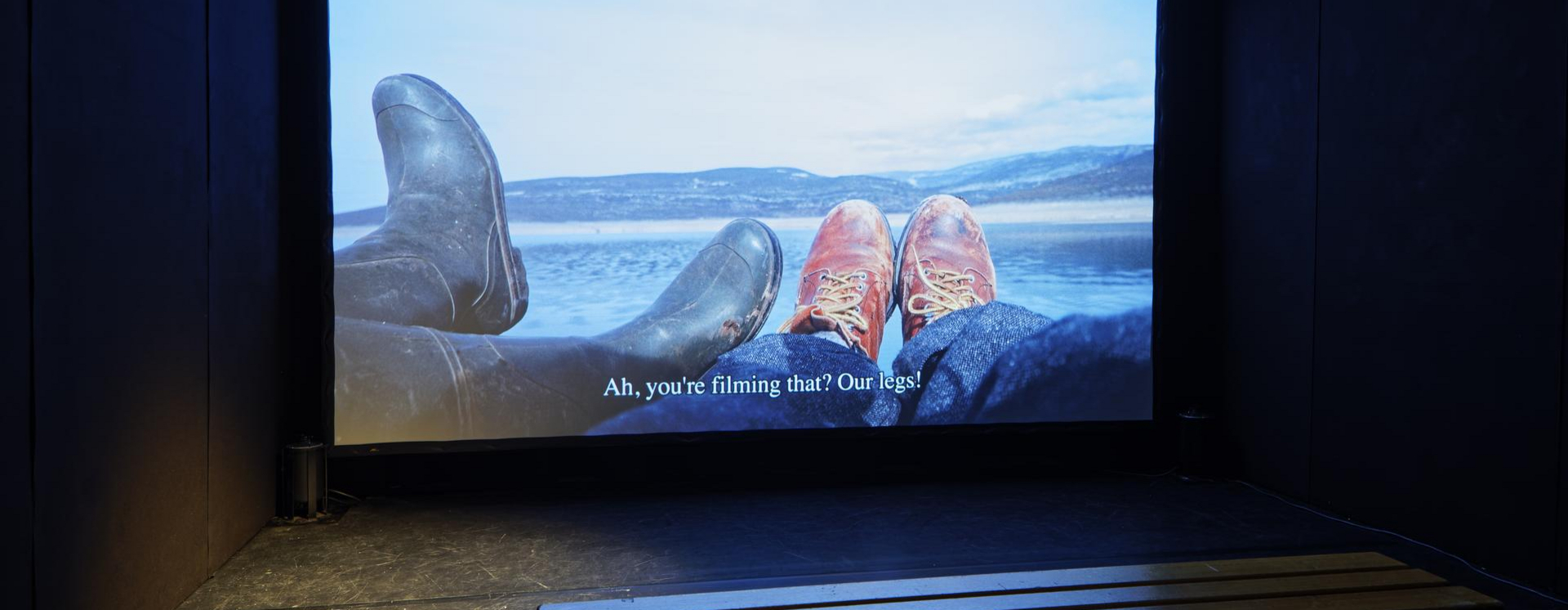Forget about time
Margot Schaap (the Netherlands, 1986) has a BA in Film Directing from the Netherlands Film and Television Academy and has made a few critically successful short and medium lenght fiction films. She also directs music videos and plays.
Voice of my Father
Orhan Eskiköy & Zeynel Dogan (Turkey/Germany/France 2012)
An old woman walks trough the wide Kurdish landscape. She looks small and vulnerable in comparison to the massive mountains that surround her. It takes a while, but eventually she arrives at an open space with small mounds of piled stones. She bends over and carefully kisses the upper stone. For a while nothing happens. Then she turns around and starts to walk again. With the same slow but careful steps through the overwhelming landscape she returns.
I feel relieved. No attempt to set a statement, to wake me up with unexpected shocking images, nor to indoctrinate me with some kind of controversial message that I have to adopt. Just sit and watch. Experience how this woman moves, talks, looks around. It’s strange how a film in which time is so clearly present and moves so remarkable slow, is able to make you forget about time. Such an enjoyable experience.
'Voice of my father' tells about the Kurdish man Zeynel, who lives with his pregnant woman in the city. His mother lives in a deserted village in the countryside. Zeynels older brother Hassan left the country after he joined the Guerilla movement, and they’ve never heard from him again. When they were young, their father moved to Saudi-Arabia to make money, but he died during his work. The only things left are the old cassette tapes he made, to inform them about his life over there (he wasn’t able to write and read). Now that Zeynel is going to be a father himself, he gets more curious about what sort of man his father was. He wants to find out where the rest of the cassettes are. Back at his parental home he struggles to communicate with his mother, who is obsessed with her absent oldest son.
The film is composed out of small gestures in words and movements. The story is told as simple as possible, leaving space for details that show everything you want to know about the characters. The meanings of the Kurdish words the mother explains when she’s on the phone with somebody who doesn’t talk back (she thinks it’s her absent son) are beautiful. They make the film a tribute to both the strength of family ties, and the beauty of the Kurdish culture. Gradually the film turns out to be a statement after all: about suppression and the major influence of language. But a statement formulated in such a subtle and sensitive way, that I do not only understand ‘the message’, but also experience it.

